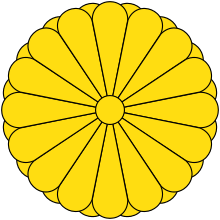Japan–Latin America relations
| Latin America | Japan |
|---|
Japan–Latin America relations span a period not later than the 19th century to the present.
Overview
In Latin America, Japan has a long history of diplomatic relations with countries like Peru and Brazil. There has been a large ethnic Japanese presence in Latin America since the late 1800s. In the past decade, two factors have driven a deepening of these trans-Pacific relationships: first, at the turn of the century, Japan shifted its foreign policy from its traditional emphasis on multilateral concepts to one emphasizing regionalism in order to shore up weakened competitiveness as compared to other international actors. Second, Latin American countries, especially South American ones, were experiencing high rates of economic growth and political stability, making the region more attractive to foreign investors.[1]
Relations with particular Latin American countries
Argentina
Argentine–Japanese relations were established in the late 19th century. The history of Japanese-Argentinian relations was influenced to a large extent by Argentina being a country of immigration. The first known Japanese to immigrate to Argentina arrived by boat in 1886. Argentina today has about 30,000 Japanese immigrants. Diplomatic relations between Japan and Argentina were raised to Embassy level in 1940 but relations were severed in 1944. On March 27, 1945, the Argentinian government entered World War II on the Allied side and declared war on the Japanese Empire.
Diplomatic relations were restored by the signing of the San Francisco Peace Treaty in 1952. Argentine president Arturo Frondizi visited Japan in 1960, and bilateral trade and Japanese investment into Argentina have increased in importance.
Brazil
Brazil–Japan relations refers to the bilateral relationship of Brazil and Japan. Japan first established diplomatic relations with Brazil in 1895.[2] After World War II, Japan used foreign aid to promote its trade with Brazil.[3]
Colombia
Colombia–Japan relations refers to the diplomatic relations between the Republic of Colombia and Japan. The relationship was officially established in 1908, but interrupted between 1942 and 1954 with the surge of World War II. Embassy status was regained in 1957. Relations are mostly based on commercial trade, cultural exchanges and technological and philanthropic aid.[4]
Mexico
Paraguay
Japan–Paraguay relations refers to the bilateral relationship of Paraguay and Japan. Japan first established diplomatic relations with Paraguay in 1919.[5]
Peru

Uruguay
Japan–Uruguay relations refers to the bilateral relationship of Uruguay and Japan. Japan first established diplomatic relations with Uruguay in 1921.[6]
Venezuela
Japan–Venezuela relations are foreign relations between Japan and Venezuela. Formal diplomatic relations between the countries were established in August 1938.[7] Venezuela, however, broke off diplomatic ties with Japan in December 1941.[8] In 1999, Venezuelan President Hugo Chavez made a three-day trip to Japan. he made another two-day trip in 2009, during which he met Prime Minister Taro Aso. During the trip, they agreed to cooperate on oil and gas developments and form a committee to study financing development and exploration. Japan and Venezuela signed a dozen other accords as part of Chavez’s visit.[9]
Culture
Japanese migrants brought Japanese culture to Latin America. They also introduced intensive farming systems and Asian crops and the concept of agricultural cooperatives.[10]
References
- ↑ "Global Insider: Japan-Latin America Relations". Retrieved 2011-11-22.
- ↑ Kodansha encyclopedia of Japan, 1983
- ↑ Helen Lanto Quan (2002), Finance, diplomacy and development: a study of Brazilian-Japanese relations in the twentieth century, University of California
- ↑ (Spanish) Colombian embassy in Japan
- ↑ Japanese embassy in Asuncion "Japanese embassy in Asuncion" Check
|url=value (help). Retrieved 2013-12-29. (Spanish) - ↑ "Japanese embassy in Montevideo". Retrieved 11-3-2013. Check date values in:
|access-date=(help) (Spanish) - ↑ Ministry of Foreign Affairs of Japan: Japan-Venezuelan relations
- ↑ "Venezuela Breaks with Axis Regimes," New York Times, Jan. 1, 1942
- ↑ Hirokawa, Takashi (2009-04-06). "Japan, Venezuela to Cooperate on Oil, Gas Projects (Update3)". Bloomberg. Retrieved 2011-12-20.
- ↑ "Japan–Latin America Relations". Retrieved 2011-11-22.
